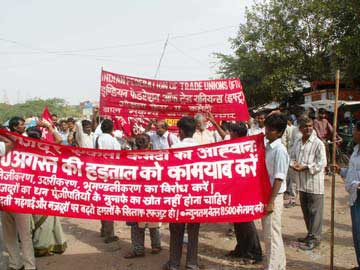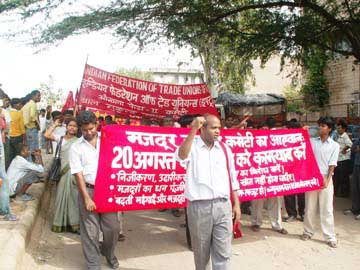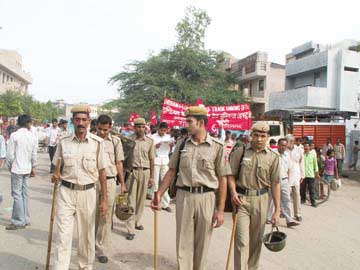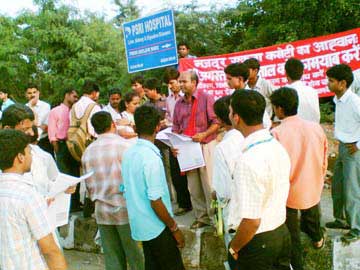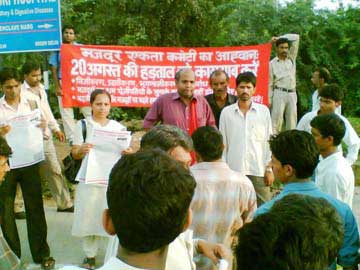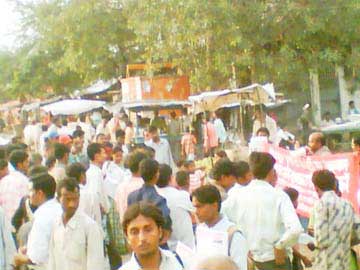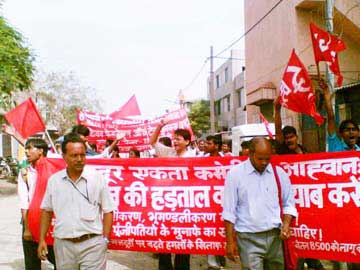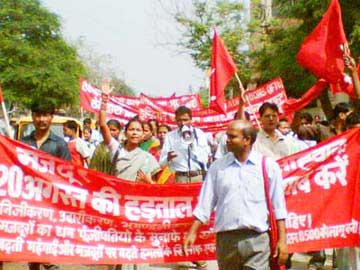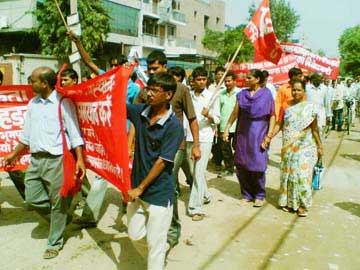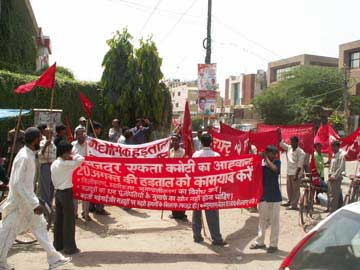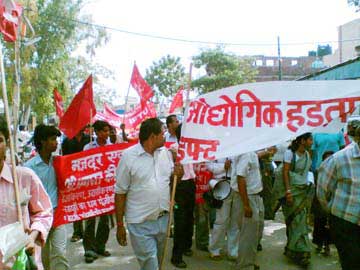
Archive 2009
|
September 1-15, 2008
Strike in Delhi
Delhi’s working class participated vigourously in the all-India strike organised on Aug 20. The strike was against the government’s anti-worker, anti-peasant and anti-national policies, and against the rising inflation, against the continuing attacks on labour laws, and for minimum wages of Rs.8,500 per month, among other demands. While the Delhi Trade Union Joint Committee organized the strike, several trade unions supported it. Workers of the many industrial areasparticipated in the strike. Seelampur, Shahdara, Mongolpuri, Dwarka, Narela, Mayapuri, Naraina, Jehangirpuri, G.T. Karnal Road, Wazirpur, Laxmi Nagar were among the areas where most of the industrial units remained closed. Workers of the Banking & Insurance sectors, employees of Delhi University, Hotel unions, Delhi Transport Corporation workers and Mother Dairy employees also participated. Campaign The Mazdoor Ekta Committee, a member of the Delhi Trade Union Joint Committee, in conjunction with the Communist Ghadar Party of India, campaigned vigourously for the demands in the Okhla Industrial Area during Aug 12-19. Its activists held street corner meetings. Leaflets of the CGPI and the Joint Committee were distributed among the workers. The police tried to halt the campaign in several places. Through this campaign, the anti-social policies and actions of the government were exposed, as also the implications of the Indo-US strategic alliance for the future of the Indian people. Joint Rally On August 20, MEC, jointly with several trade unions of the Okhla industrial area organized a militant rally and demonstration. Many workers of the area joined the rally as it wound its way past the factory gates of the industrial units. Slogans of “Down with the bourgeoisie!” and “Inquilab Zindabad!” rent the air. Finally, the rally transformed into a public meeting at one of the crossroads in the Phase II area. Leaders of the Delhi Regional Committee of CGPI, MEC and IFTU addressed the meeting. The speakers opposed the policies of globalisation through privatisation and liberalization and said it was necessary to put an end to these policies. They also explained that the price of the Indo-US strategic alliance would be paid by the working class of India and therefore it must be opposed.
|
